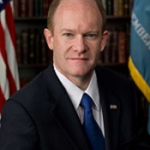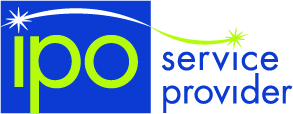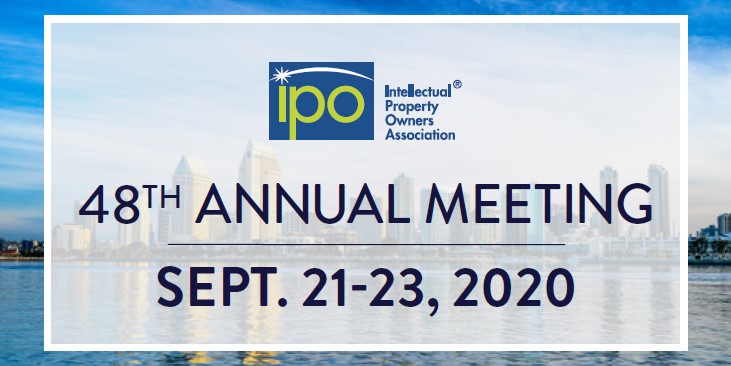IPOwners Quarterly™ 03/31/2020 (original) (raw)
IPOwners Quarterly™ 03/31/20202020-04-10T13:06:36-04:00
IN THIS ISSUE…
- Welcome to the Inaugural Issue of the IPOwners Quarterly™
- Sen. Chris Coons Provides Keynote Remarks at IPOwners Spring Summit™
- Report on 2019-2020 U.S. Intellectual Property Policy Developments
- U.S. IP Cases to Keep an Eye On in 2020
- New Legislation Would Empower U.S. Customs to Seize Products Infringing Design Patents at the U.S. Border
- Global Assignment Project Gains Momentum
- IPO Diversity & Inclusion Committee Shares Practical Guide to D&I in the Profession
- Q&A with IPO Women in IP Committee Co-Chairs Michelle Bugbee and Sandra Nowak on Gender Diversity in Innovation Toolkit
- IPO Launches Intellectual Property Service Directory
- IPO Education Foundation to Honor Judge O’Malley at Annual Awards Dinner on December 9

Jessica Landacre
Welcome to the Inaugural Issue of the IPOwners Quarterly™
Welcome to the IPOwners Quarterly, a new publication providing members with analysis and updates on IP issues and association activities at the end of each quarter. I hope you find this a useful addition to the _IPO Daily News_™ and welcome your feedback.
I am delighted to have the opportunity to serve you as the fifth Executive Director in the organization’s 48-year history. The intellectual property ecosystem is at an inflection point and IPO can play an important role in influencing its future. As a broad-based association representing owners, IPO is uniquely positioned to advocate for an IP system that promotes innovation and the development of new technologies. The dramatic impact of coronavirus/COVID-19 on the lives of people and businesses around the world brings into focus, more than ever, the importance of an IP system that stimulates the innovative process.
Last year, IPO demonstrated leadership in important policy areas such as patent subject matter eligibility, increasing diversity in patenting, the impact of artificial intelligence on intellectual property law, and international patent harmonization. In the first quarter of 2020, IPO has supported the Counterfeit Goods Seizure Act, provided feedback about the development of the recently introduced Trademark Modernization Act, and filed an amicus brief at the U.S. Supreme Court in USPTO v. Booking.com. IPO also recommended criteria and qualifications for the Director General of WIPO and Register of Copyrights and testified in a public hearing related to the U.S. Trade Representative’s Special 301 Review, highlighting concerns about insufficient protection of IP rights globally. The extent of the impact of coronavirus and the upcoming election in the U.S. is still unknown. But earlier this month at IPO’s 3rd Annual Spring Summit in Washington, DC, Senator Chris Coons, Ranking Member of the Senate Judiciary Subcommittee on Intellectual Property, encouraged IPO to continue to identify solutions to address problems in the system and use this uncertain time to educate members of Congress on the role of intellectual property rights in driving innovation and supporting the U.S. economy.
In the last three years, IPO has demonstrated leadership and commitment to developing a pipeline of diverse next generation leaders for the profession. In 2020, members have exciting new programs to learn from and engage with their peers including a Corporate Mentoring Program and a Next Generation Leaders Committee, both designed to foster the career development of IP professionals through relationship-building in the IPO community. Members can join the Diversity and Inclusion Committee and its four Resource Groups (Asian IP Professionals, Black IP Professionals, Hispanic IP Professionals and Pride and Allies IP Professionals) to broaden the discussion and education about diversity and inclusion in the IP community. Finally, IPO’s prolific Women in IP Committee continues to make its Gender Diversity in Innovation Toolkit more accessible to organizations by hosting quarterly calls with members. Amidst wide-spread social distancing, plans for taking the toolkit on the road during the first half of this year have been postponed. Stay tuned, however, for announcements about virtual roundtable discussions with the USPTO on how to expand the innovation ecosphere.
The IPO Education Foundation will continue to do its part educating the public about the role IP plays in innovation with the launch of season 3 of its _Stroke of Genius_™ podcast later in the spring. Subscribe to enjoy fascinating stories about patents, trademarks, copyrights, and trade secrets. Catch up on seasons one and two to learn about inventors like Lonnie Johnson (inventor of the Super Soaker), Temple Grandin (inventor, author, and autism activist), and Dean Kamen (inventor of the Segway) and why they would not have been successful without IP protection.
The IPO Board of Directors and professional staff are committed to tackling the challenges ahead and finding ways to better serve you. The IPO community consists of thought-leaders from all industries including pharma and biotech, high tech, consumer goods and manufacturing, chemical, defense, and others. It will continue to be a place where ideas are shared, solutions are identified, and friendships are maintained, even if we must connect virtually during these uncertain times. Be a part of the conversation and make your voice heard through membership. I hope you enjoy this publication and I look forward to reporting on our activities in the next IPOwners Quarterly.

Jessica K. Landacre
Executive Director
Sen. Chris Coons Provides Keynote Remarks at IPOwners Spring Summit

Sen. Chris Coons
On March 5, Senator Chris Coons, Ranking Member of the Senate Judiciary S ubcommittee on Intellectual Property , gave the keynote remarks at the IPOwners Spring Summit in Washington, DC. We are delighted to share a transcript of his remarks, which has been lightly edited for clarity.
SENATOR COONS: I love being in a room with people who know something about science and think innovation matters and think that protecting inventions and innovations matter. Where did all this enthusiasm come from on my part? Well, I’m from a family of inventors and patent holders. Even my step-brother, who plays guitar in a rock and roll band has a patent, so it’s nice that I’ve got a BA in chemistry. But at Thanksgiving dinner in my family, I’m at the kids’ table because I don’t actually do chemistry. I’m not actually inventing things.
But more broadly, I recognize that [IP is implicated] in making policy around [many] issues — I met with the FCC commissioner this morning, the chairman of the FCC Commission to talk about broadband, 5G, artificial intelligence. We had an Appropriations hearing yesterday with the Secretary of Energy about our national laboratory system, about how are we staying competitive in terms of innovation, and we just had a hearing on Judiciary. I’ve got to tell you, all of these issues come back to do we protect intellectual property in this country.
As in-house counsel of a global invention and manufacturing company, I learned from day one that without the ability to protect and defend our IP across the entire family from patents to trade secrets to trademarks to copyright, if we couldn’t defend it, we couldn’t compete. If we couldn’t compete, we couldn’t fund invention and innovation. If we couldn’t do that, we couldn’t bring forward life-saving new devices. Half of that company today is medical devices. Back then, it was much more broadly distributed. But I get the virtuous cycle that is absolutely anchored in protecting intellectual property. I hope you’re doing everything you can to educate policymakers.
I was just communicating with the PTO director. We were just noting with some positivity and relief the outcome of the election that led to Daren Tang being the newly elected director general of the World Intellectual Property Organization. It was a fairly strong vote, 55 to 28. And I’ll just say that, for all of us who worry about where are we headed globally, seeing that folks who come from jurisdictions that are committed to the strong protection of patents in particular but other forms of IP, seeing them advance in standard-setting bodies, seeing them advance in UN-related bodies is a critical concern of mine and was actually the line of questioning I carried forward in a Judiciary Committee [meeting] yesterday.
So let me talk just broadly first about where I think we are. I think we have weakened our patent system. I think even as China is strengthening its IP protection, even as China is moving forward in not just filing more patents but in strengthening some of its domestic IP protection system, we have to do a better job of strengthening our own IP system. So there are serious questions that we have to address, such as muddy patent eligibility for critical next–generation technologies like 5G, quantum computing but most centrally, artificial intelligence. China is systematically asserting its role in standard-setting organizations to stake out a critical position in the race for the deployment of 5G. We really have challenges, and I think if we don’t step forward on this we’re going to discover that the next generation of technologies that deploy globally are subject to being undermined or weakened by standards that we don’t agree with.
If a disruptive innovator cannot rely on the ability to defend their invention through patent litigation, then it’s really not worth much at all. And so I’ve also got, as you know, some profound concerns about how PTAB trials are playing out and how serial IPR challenges are playing out. So you heard in the introduction a reference to a piece of legislation that I’ve been trying to move forward for some time, the STRONGER Patents Act. It is bipartisan. It is bicameral. There are very few pieces of legislation that fit those two descriptors. I try to do things that fit those two descriptors. We had a hearing last fall on this legislation that would harmonize, for example, the pleading standards under PTAB and district court trials that would restore the ability of inventors to seek injunctive relief, which I think is critical, and that would eliminate some of these abusive serial attacks on what should be settled intellectual property.
And as you heard, we went through a marathon session, Chairman Tillis and I, of three hearings with 45 witnesses as we continue to try and find a pragmatic fix for patent eligibility for Section 101 reform. And I just want to both thank IPO for being engaged and for being constructive, but, to everyone in the room, I just want you to hear that it’s critical for stakeholders to come to the table in a pragmatic frame and be willing to forge a consensus.
We have a vanishingly small amount of time left to get anything done in this Congress. First week of March might seem early to you. For a senator who knows what happens in an election year, I will tell you this. Congress is almost over. It is going to end in a couple of weeks at this point.
I really respect that Chairman Tillis is as engaged in hearings and in legislating as much as he is. We’re in March, and we just had our first Digital Millennium Copyright Act hearing. We had, as you heard in the introduction, 12 subcommittee hearings in the last year. That makes this the busiest subcommittee of the entire Senate Judiciary Committee. We’ve conducted the hearings in a collaborative, positive way. We may be the only subcommittee of the Senate Judiciary Committee where the chair and ranking actually get along, where our staff gets along, where we’re able to come up with a common agenda and agree on witnesses easily. And that may be why we had 12 hearings last year.
But Thom just recently told me it’s his intention to have ten hearings on DMCA, and I looked at him and blinked and said, “Ten? Isn’t there something else you need to be involved in?” He goes, “No, we’re committed. We’re really going to explore. We’re really going to reconsider.” Good for you. I’m going to show up at every one of them.
But I just think that we ought to recognize that, when you’ve got a Republican and a Democrat from two states that have deep traditions of invention, innovation and where IP is central willing to keep moving and willing to keep legislating, we need help. We need folks who are willing to come to the table and be pragmatic to help solve these issues — whether it’s Section 101 or it’s to help guide our work on DMCA.
Now, we also introduced counterfeit goods legislation following a DHS report last year. This is the Counterfeit Goods Seizure Act, which allows CBP to seize goods for design patent infringement. And it’s my genuine hope that we’re going to move this forward quickly. Look, endless hearings are great. Legislation is better. Laws are terrific, right? So if I’m going to keep cashing my paycheck, we ought to see some bills moving and signed into law. That’s what I’m actually fairly optimistic about. And I’m going to keep advocating both for administrative actions and then for their ratification and codification around PTAB and patent eligibility reforms.
We’re also, I think, making real progress on the lack of diversity in the patent ecosystem, both in terms of inventors and patent filers. So I just want to applaud IPO for your recent Gender Diversity in Innovation Toolkit.And I am proud to work with Senator Hirono of Hawaii and to co-sponsor the IDEA Act, which would require the Patent and Trademark Office to collect voluntary, confidential demographic data. This is one we should be able to get done, so your support and engagement matters a great deal.
I do think there’s hope. If you look back at the Music Modernization Act of 2018, when I first became a senator a decade ago and was briefed on the thicket of issues around digital rights and performance rights and licensing and fees, I thought this is literally never going to get solved. That Music Modernization got signed into law was, I think, a big accomplishment. And the Defend Trade Secrets Act of 2016, which Senator Hatch and Senator Leahy led so admirably — and I was proud to play some small role in — was another suggestion that even folks who are fairly far apart on the ideological spectrum can meaningfully legislate.
My principal message to you today is, if you look at the Congress of the United States and you see a divided partisan wasteland in which virtually nothing is moving, your reality testing gear is in fine working order. When it comes to genuine national threats like coronavirus, we are capable of moving, responsibly and quickly and in a bipartisan way. The threat that the United States faces to the weakening of our own intellectual property system at home and to the rapid change of the IP ecosystem globally is real and is significant and should lead to a comparable level of motivation to act swiftly and in a bipartisan way.
But we need help from stakeholders. We need folks who are engaged in this industry to communicate to members or, if you can’t get a member to listen to you about it, to their staff. And frankly, we need to be relentless about how quickly things are changing across an entire sweep of critical technologies and how these are no longer clearly delineated into national security related, purely commercial related, virtually every critical technology that is emerging is a dual-use technology and is going to shape this century. So folks, let’s face up to this challenge and this opportunity together, and let’s legislate. Thank you.
QUESTION : Thank you for your leadership in speaking for the IPO community. You have a lot of stakeholders here. You mentioned that we should be engaging more with various members to ensure that they’re hearing our concerns about the lack of predictability and, frankly, the undermining of the IP system in this country. Are there specific messages you would recommend that you think would resonate with some of your colleagues?
SENATOR COONS: Depends which because we’ve got a wide range of colleagues who have a widely varying level of interest, familiarity, and engagement. To me, when several years ago there was a very aggressive effort to rewrite the rules of patent litigation — and I dedicated a lot of time to talking directly to colleagues — I just didn’t realize that not everybody grew up with three out of four heads of household immediately surrounding you being DuPont chemical engineers who have patents, right? So it isn’t sort of casual campfire conversation or backyard pool conversation about “What patent did you get?” That’s where I grew up. My Boy Scout troop master had patents. My high school chemistry teacher had patents.
And I am not a member of the patent bar, by the way. I am a member of the Delaware Bar. I proudly worked as in-house counsel for a company where half of the attorneys in our legal department were patent lawyers. I know patent lawyers, and some of them are among my best friends.
But having an appreciation — so first, what would you say to members if you had the unalloyed opportunity and their actual attention? First, understanding that technology and innovation and investment are differently configured across the folks who invent and make things, right? So there’s folks in Silicon Valley and there’s folks in telecom and communications who have one set of views about IP, which are not irrational. They’re well rooted in their economic ecosystem and how the cycle of innovation and investment works and is rewarded.
But it is exactly opposite if you’re inventing a new pharmaceutical, you’re discovering a new pharmaceutical, if you’re inventing a new material, if you’re deploying a new composite. I mean the things that DuPont did in my community when I was a kid, the stuff they were inventing is very different from release 2.4.7 of the latest app. And you view IP differently in these two worlds.
Helping senators appreciate that the bedrock of manufacturing, of employment, and of our competitiveness that is related to our military and our sustainable competitive advantage globally is at this end of that spectrum, not at this end. That’s a big push and would be a big win because most senators, if someone comes and talks fancy at him about inventing stuff, they think it’s all the same, no disrespect. But more senators came to the Judiciary Committee having been prosecutors and attorneys general than any other route, and that means they had virtually no exposure to IP at all. And others have no legal background or business background.
So you shouldn’t assume that fights about this are fact–based. They’re not. You shouldn’t assume that senators get and can differentiate between small inventors, big inventors and incumbents and disruptive. You shouldn’t assume they’ve ever watched Shark Tank. I went to one of my colleagues and said you know, “When you watch Shark Tank and they get to that investment moment, and one of the investors says do you have a patent?” He’s like, What’s Shark Tank?” And I went okay. I was trying to be relatable here. Recognizing the gap between the world you live and work in and the world senators live and work in is huge, A. B, these fights are not based on science. They are based on politics.
So, C, help them hear from major employers in their home state. So Siemens employs 1,500 people in a world–class manufacturing facility in my state. My state, we’ve got lots of manufacturing that is directly related to the protection of IP. That link is also not clear. Like why does a stronger IP system lead to more employment? Like what? This is not an obvious thing.
I’m just pointing out that senators have areas of expertise, right? So you might have a senator from a state who has deep knowledge about Native American rights. I don’t know as much about tribal governance, tribal politics and Indian country, given my previous experience. There are very few senators who have any previous experience in a business environment where the legal protection of IP is relevant. I am no expert.
QUESTION : Is there any way we can use coronavirus as a means of getting our diagnostics back? Because right now diagnostics are dead thanks to Myriad and Prometheus and for the same reason that you’re talking about AI and 5G and everything else. But arguably there is no economic incentive for us to develop diagnostics at this time. And there is all the economic incentive to take all of the genetic data and make a trade secret, which is what in many ways Myriad and BRCA1 led to. So my question is can we use it — use coronavirus as a sword to sort of push people along towards legislation?
SENATOR COONS: I hope. Again, it requires a condition precedent that we have to have folks who are willing to engage in the work around patent eligibility. But over and over and over I’ve said to my colleagues at least, “Here are the two most exciting, important, rapidly growing fields that are directly relevant where investment is moving to other countries, predictability — so predictability has moved to other countries, so investment is moving to other countries, so development is moving to other countries, so the opportunities are moving to other countries.” And helping folks see that that’s what’s going on would be critical.
My concern — this is a teachable moment around coronavirus, absolutely. My fear is that I’ll end up in the next Congress, and then we get to do three hearings with 45 witnesses again, not that that was anything other than delightful. I mean who doesn’t want to spend six to eight hours hearing from experts about Section 101 reform? I mean, I want to do that again. Everybody in? Let’s do it. But the frustration that is setting in — there is an increasingly strengthened perception that oh, this isn’t going to go anywhere. And so the amount of energy and time and investment on hammering out a viable compromise that folks can live with is waning.
It doesn’t make the legal issues or the economic issues any easier to relate them to coronavirus. It’s not as if in the appropriations package we’re going to drop a rider that suddenly wipes out Supreme Court precedent, but it is a teachable moment. I am having conversations about vaccines and vaccine development and bio–defensive measures. If you want a world–class biopharma industry, you got to pay attention to whether or not a company that invents something or develops something new is actually able to recover their costs. And whether they can recover their costs and make a profit largely depends on the IP environment in which they’re operating. So I agree with you. Coronavirus is a teachable moment across diagnostics and a wider range of issues.
Report on 2019-2020 U.S. Intellectual Property Policy Developments

Samantha Aguayo
By Samantha Aguayo, IPO Deputy Executive Director & Chief Policy Counsel
The 116th Session of Congress, which began on January 1, 2019, has seen the most intellectual property activity in several years. The Senate Judiciary Subcommittee on Intellectual Property, led by Chair Thom Tillis (R-N.C.) and Ranking Member Chris Coons (D-Del.), was reinstated this Congress and wasted no time getting to work. In just a year, the Senate IP Subcommittee held 12 congressional hearings on IP issues and sent numerous letters to various agency heads. This activity has sent a strong message that IP protection is important to the U.S. economy. Sen. Coons gave an extremely informative and well-received keynote address about key issues and his vision for the IP system during the IPOwners Spring Summit earlier this month.
I will review highlights of the past fifteen months below, but I first must address recent developments related to the coronavirus pandemic. This unprecedented situation has shifted everyone’s focus, including lawmakers’, from business as usual to crisis management. Last week, Congress passed and President Trump signed the “Coronavirus Aid, Relief, and Economic Security Act” or the “CARES Act,” a $2 trillion stimulus package. Tucked into this massive piece of legislation are two provisions that affect patent, trademark, and copyright applicants and owners.
Section 12004, titled “Temporary Authority of Director of the USPTO During the Covid–19 Emergency,” provides the USPTO Director the authority to “toll, waive, adjust, or modify, any timing deadline established by title 35, United States Code, the Trademark Act, section 18 of the Leahy-Smith America Invents Act … or regulations promulgated thereunder.” If the Director finds that “the emergency declared by the President pursuant to the National Emergencies Act on March 13, 2020” in response to the coronavirus pandemic “materially affects the functioning of the Patent and Trademark Office,” “prejudices the rights of applicants, registrants, patent owners, or others appearing before the Office,” or prevents users from filing a document or paying a fee timely, the Director will have the authority to determine that “tolling, waiving, adjusting, or modifying a timing deadline” is appropriate and to issue a public notice to that effect. The authority took effect upon enactment and will end 60 days following the end of the emergency. The authority expires two years after the date of enactment.
Section 19011, titled “National Emergency Relief Authority for the Register of Copyrights,” gives the Register of Copyrights the authority to “on a temporary basis, toll, waive, adjust, or modify any timing provision” upon finding “that a national emergency declared by the President under the National Emergencies Act will generally disrupt or suspend the ordinary functioning of the copyright system.”
In addition to this emergency relief, many government offices are temporarily closed to the public. U.S. Patent and Trademark Offices are closed to the public and its employees are teleworking until further notice. USPTO operations otherwise continue as normal. The U.S. Copyright Office building is closed. The U.S. Supreme Court is also closed, which resulted in the postponement of oral arguments in the Google v. Oracle copyright suit.
The pandemic might stall progress on IP legislation for the near future, and by the time things are more normal we will find ourselves in the middle of campaign season in advance of the November elections—making it difficult to predict whether any IP legislation will be passed in 2020. However, even if there is no action this year, the IPO community has the opportunity to influence how the IP system will weather this crisis and to continue emphasizing the relationship of intellectual property rights to innovation, economic security, and saving lives.
Here is a review of the most significant legislative, regulatory, and judicial activity on IP since the beginning of 2019.
Section 101 Reform
Beginning early last year, Chairman Tillis and Ranking Member Coons worked with House Judiciary Committee Ranking Member Doug Collins (R-Ga.), House IP Subcommittee Chairman Hank Johnson (D-Ga.), and Rep. Steve Stivers (R-Ohio) to draft legislative language intended to reform Patent Act section 101 concerning patent subject matter eligibility. After holding numerous roundtables to receive input from stakeholders, they published draft language in May. This was immediately followed by an unprecedented three-day series of hearings in June —held by the Senate Judiciary IP Subcommittee—on “The State of Patent Eligibility.” A diverse group of 45 total witnesses gave testimony about how the law had affected U.S. businesses and commented on the draft legislation.
Despite this extensive activity, several outstanding issues make section 101 reform an unlikely legislative victory this term. Although many witnesses and stakeholders, including IPO, support a legislative solution to the issues the Supreme Court’s section 101 jurisprudence has created for some companies, there are others who disagree that legislation is necessary and caution against unintended consequences such as a flood of nuisance suits. The lawmakers leading the effort have indicated that they would like to find language that addresses the various concerns. In his remarks at the IPO event earlier this month, Sen. Coons emphasized that “it’s critical for stakeholders to come to the table in a pragmatic frame and be willing to forge a consensus.”
Counterfeit Goods Seizure Act of 2019 (S.2987)
In December, Chairman Tillis and Ranking Member Coons, with Sens. Bill Cassidy (R-La.) and Mazie Hirono (D-Hawaii), introduced the Counterfeit Goods Seizure Act of 2019. The bill authorizes U.S. Customs and Border Protection to seize counterfeit imported merchandise that infringes a design patent. Currently, CBP has the authority to detect and seize only goods that infringe trademark, trade dress, and copyright rights. However, counterfeiters frequently import goods separately from labels to evade detection by customs officials.
IPO supports the legislation and sent a letter of support on December 5 with the American Intellectual Property Law Association. The letter applauded the bill for making “the straightforward change required to adapt CBP’s existing enforcement mechanisms and tools to include the enforcement of design patents.” There is no House companion bill to date.
New SEP Policy Statement
Also in December, the USPTO, National Institute of Standards and Technology (NIST), and the U.S. Department of Justice’s (DOJ) Antitrust Division released a Policy Statement on Remedies for Standards-Essential Patents (SEPs) Subject to Voluntary F/RAND commitments. The statement clarifies that a patent owner’s promise to license a patent on F/RAND terms is not a bar to obtaining any particular remedy, including injunctive relief. It replaces a 2013 joint statement on this issue from the USPTO and DOJ that had been interpreted to suggest that injunctive relief was not available to remedy infringement of SEPs.
Federal Circuit’s Arthrex Decision
On October 31st, 2019, a panel of Federal Circuit judges held that USPTO Patent Trial and Appeal Board (PTAB) administrative patent judges (APJs) were principal officers who should have been nominated by the President and confirmed by the Senate, rather than by the Secretary of Commerce. The Court remedied the violation by “partial invalidation of the statutory limitations on the removal of APJs.” On December 16th, the DOJ and the USPTO filed an en banc petition asking the full Federal Circuit to reconsider the Arthrex decision, claiming that the three-judge panel made “several important legal errors.”
The House Judiciary IP Subcommittee held a hearing to consider the implications of this case and potential legislative solutions in November. Chairman Jerry Nadler (D-N.Y.) and IP Subcommittee Chairman Johnson expressed concerns about the proposed remedy, cautioning against removing the civil service designations of APJs. They stressed that doing so could hinder transparency and force APJs to align with the motives of whoever is the USPTO Director at the time.
Last week, the Federal Circuit denied rehearing en banc in Arthrex, saying it was in line with precedent. Judge Moore filed a concurring opinion, joined by Judges O’Malley, Reyna and Chen, arguing that granting rehearing “would only create unnecessary uncertainty and disruption.” Moore added that the Arthrex panel followed Supreme Court precedent in concluding that APJs were improperly appointed principal officers, and also followed precedent in its solution which severed a portion of the statute “to solve that constitutional problem while preserving the remainder of the statute and minimizing disruption to the inter partes review system Congress created.” Judges Dyk, Hughes, and Wallach each filed dissenting opinions suggesting that APJs are properly appointed inferior officers. Most court watchers expect that a petition for certiorari will be filed in the U.S. Supreme Court.
Trademark Modernization Act of 2020 (H.R. 6196/S. 3449)
On March 12 House Judiciary Committee Chair Nadler and Ranking Member Collins, House IP Subcommittee Chair Johnson and Ranking Member Martha Roby (R-Ala.), and Senate Judiciary IP Subcommittee Chairman Tillis and Ranking Member Coons introduced the Trademark Modernization Act of 2020 (TM Act). The bill is intended to provide the USPTO with additional mechanisms to address a significant increase in trademark registrations that falsely claim use of a mark that has not actually been used by the registrant. Many of these applications are filed by applicants outside the U.S. and rely on doctored photos to demonstrate use and fraudulently register a mark.
The TM Act will codify a procedure that allows third parties to submit evidence during the examination of trademark applications and will authorize the USPTO to set response periods for office action actions issued during examination, for time periods ranging from 60 days to six months, with the option to pay additional fees for extensions. It will also create two separate ex parte proceedings to allow third parties to request expungement of a registration when a mark has not been used. Finally, the bill will resolve a post-eBay circuit split by clarifying that trademark owners are entitled to a presumption of irreparable harm in support of an injunction against a trademark infringer. IPO supports several of these proposals in principle.
The bill was drafted following House and Senate IP Subcommittee hearings in 2019 to consider the surge in bad faith and fraudulent trademark registrations, particularly from mainland China. The USPTO has taken a number of actions such as requiring foreign-domiciled applicants to be represented by U.S. counsel, creating a task force to focus on improper behavior, auditing post-registration maintenance filings, issuing refusals to register marks based on lack of evidence of use in commerce, and allowing third parties to submit evidence in examination. The lawmakers convened a series of stakeholder roundtables to receive feedback on legislative solutions from groups including IPO prior to introducing the TM Act.
Tons of Copyright Development s
The Copyright Alternative in Small-Claims Enforcement Act of 2019 (CASE Act) (H.R.2426/ S.1273) would establish a voluntary small claims tribunal operating within the U.S. Copyright Office, called the Copyright Claims Board.The bill passed the House by a 410-6 vote on October 23rd.It currently has 18 co-sponsors in the Senate and has passed the Senate Judiciary Committee without objection. It is awaiting action on the Senate floor, but Sen. Ron Wyden (D-Ore.) has a hold on the bill in the upper chamber.
Earlier this year Chairman Tillis announced his intention to craft new legislation to modernize the Digital Millennium Copyright Act (DMCA) for today’s internet.He will hold a series of hearings over the next year to collect feedback, with the goal of releasing a draft DMCA reform bill in December 2020. The first DMCA hearing, on “The Digital Millennium Copyright Act at 22: What is it, Why was it enacted, and Where are we now” was held on Feb. 11. The second was held on March 10 and was titled “Copyright Law in Foreign Jurisdictions: How are other countries handling digital piracy?”
Late last year Chairman Tillis (R-NC) circulated a discussion draft of a Copyright Office Modernization bill to stakeholders that participated in a series of roundtable meetings on the issue last fall.The proposed legislation would impact the Copyright Office and the Library of Congress IT infrastructure and modify language for deposit requirements.
Finally, following the departure of former Register of Copyrights Karyn Temple in December, Maria Strong was appointed to serve as Acting Register of Copyrights and Director of the U.S. Copyright Office. Strong joined the Copyright Office in 2010 and most recently served as Associate Register of Copyrights and Director of Policy and International Affairs. The LOC hosted “listening sessions” on the process for selecting a new Register in January and February.
I hope this review has been useful and informative. It has been a busy 15 months. IPO—and I—will continue reporting on U.S. policy activity of interest to our members. If there are specific issues you would like to see covered in future issues, I welcome suggestions.
U.S. IP Cases to Keep an Eye on in 2020

Paul Berghoff
by IPO Amicus Brief Committee Co-Vice Chair Paul Berghoff, McDonnell Boehnen Hulbert & Berghoff LLP
The coronavirus has 110% of our attention these days. Nonetheless, the judiciary continues to move the wheels of justice forward, albeit a little more slowly and with less face-to-face time for the near term at least. So consider this a reminder that there are some significant intellectual property decisions that are likely coming our way in 2020.
Most would agree that the biggest IP case on the horizon this year is in the copyright space. The Supreme Court will have its hands full with several fundamental copyright questions in Google v. Oracle, which focuses on Google’s use of Java source code in Android smartphones. The Supreme Court has never directly addressed the copyrightability of software or whether Java is too functional to be copyrightable. In addition, it has been many decades since the Supreme Court addressed the fair use defense to copyright infringement. Oral argument was originally scheduled for March 24 but has been postponed.
Trademarks should come in a close second to copyrights in terms of cases to watch. The Supreme Court has already heard oral arguments in two trademark cases, and we can expect decisions this year. In Romag v. Fossil, the justices will address whether willfulness is a requirement for disgorgement of a trademark infringer’s profits under the Lanham Act. IPO filed an amicus brief stating that willfulness should be a requirement under the statute. And in Booking.com, the Supreme Court is wrestling with whether the addition of a top-level domain can render an otherwise generic term protectible as a trademark. IPO filed an amicus brief in this case as well, arguing that there should not be a per se rule against such a mark achieving appropriate trademark status. (Full disclosure – my partners Eric Moran and Nicole Grimm authored both briefs for IPO.)
Will patent law fall into a deep slumber for the rest of 2020? Not exactly. Constitutional issues continue to loom with respect to IPRs. Most notably, the recent Federal Circuit panel decision in Arthrex held, with its left hand, that the PTAB violated the Constitution’s Appointments Clause, while surgically repairing this violation with a statutory scalpel in its right hand. Subsequent decisions leave no doubt that a number of Federal Circuit judges disagree with both “hands” of Arthrex. But with the recent denial of rehearing en banc, this case may be headed to the Supreme Court. The Supreme Court has also been asked to grant certiorari in Celgene v. Peter to consider whether IPRs can constitutionally invalidate patents that were issued before the AIA was passed. Stay tuned.
We do know that the Supreme Court will weigh in on at least one patent case in 2020, Thryv v. Click-to-Call. In this case, which was argued in December, the Supreme Court will decide whether § 314(d) precludes judicial review of a PTAB decision that the time bar of Section 315(b) does not apply in granting inter partes review. Another more distant possibility is review of the Federal Circuit’s recent decision in Facebook v. Windy City, in which the appellate court ignored Chevron deference in adopting a construction of the AIA directly contrary to the PTAB’s Precedential Opinion Panel (POP).
One topic we likely won’t see the Supreme Court tackle in 2020 is patent eligibility under Section 101. The justices have been turning away Section 101 petitions for cert. by the dozens, including a cri de couer from numerous judges on the Federal Circuit in Athena Diagnostics v. Mayo. Many in the patent field view this benign neglect by the Supreme Court as a good thing; after all, they could always make things worse!
And what about Congress? Those of us who attended IPO’s Spring Summit were very impressed with the keynote address delivered by Senator Chris Coons of Delaware. And while he expressed cautious optimism about Congress enacting meaningful IP legislation yet this year, it is hard to see that happening with the coronavirus taking center, right, and left stage, and during an election year no less.
Which brings us back full circle to the coronavirus. Stay safe, everybody!
New Legislation Would Empower U.S. Customs to Seize Products Infringing Design Patents at the U.S. Border
by IPO Industrial Designs Committee Co-Vice Chair Elizabeth D. Ferrill and Eric Liu, both of Finnegan, Henderson, Farabow, Garrett & Dunner, LLP

Elizabeth Ferrill and Eric Liu
On December 5, 2019, the Counterfeit Goods Seizure Act of 2019 (CGSA) was introduced to the U.S. Senate, proposing to amend 19 U.S.C. § 1595(a)(c)(2)(C). If enacted into law, the CGSA would allow U.S. Customs and Border Protection (CBP) the discretionary power to enforce recorded U.S. design patents at the U.S. border similar to its current discretionary power for enforcing registered trademarks and copyrights. Counterfeiters and trademark infringers have become more sophisticated in bypassing CBP with new counterfeiting techniques, which emphasizes CBP’s need for additional discretion over design patent enforcement.
Global Assignment Project Gains Momentum

Philip Soo
By Global Assignment Committee of IPO’s International Patent Law and Trade Committee Chair Philip Soo, 3M Innovative Properties Co.
Introduction by Thomas Valente, IPO Senior Director for Global Affairs
Introduction
Harmonization of patent procedures can have many benefits for IP owners and their attorneys, ranging from cost-savings to error avoidance. It can also result in the creation of multi-national platforms, such as Global Dossier, that result in more transparency in the IP system. Further, procedural harmonization should be easier to move forward on a more immediate timeline than significant substantive changes to patent laws.
Enter the Global Assignment project. As described below, having to file patent assignments in a number of countries with different requirements creates unnecessary burdens for IP owners and their attorneys and creates barriers to transparency. As a result, the idea of a global patent assignment was raised by IPO and other members of IP5 Industry during meetings with the heads of the IP5 Offices (the patent offices of China, Europe, Japan, Korea, and the U.S.).
The IPO harmonization team, led by Daniel Staudt (Siemens Corp.), IPO’s President, decided to make the global assignment a priority. IPO instituted a subcommittee which has taken the lead on this issue by gathering information from our members and creating potential global assignment forms. Other IP5 Industry Groups and the IP5 Offices have provided helpful feedback to guide the efforts of IPO’s subcommittee. The project continues to see forward progress, which can be largely credited to the work of the subcommittee’s members.
IPO Diversity & Inclusion Committee Shares Practical Guide to D&I in the Profession

D&I Committee Members
If you attended the 3rd Annual IPOwners Spring Summit in Washington, DC, you may have gotten a preview of the IPO Diversity and Inclusion Committee’s latest project. Chair Shruti Costales (HP Inc.), along with Co-Vice Chair Carlyn Burton (Osha Liang, LLP) and D&I Committee members Rachael Rodman (Ulmer & Berne, LLP) and Scott Barker (Micron Technology, Inc.), participated in a panel introducing the committee’s “Practical Guide to Diversity and Inclusion in the Legal Profession.” The guide, which is set to be officially released at IPO’s 2020 Annual Meeting in San Diego, is meant to advise best practices for creating more diverse and inclusive workplaces in the legal profession.
Taking almost a year to develop, Shruti Costales, Carlyn Burton, Rachael Rodman, Gloria Fuentes (Merck & Co Inc.), Elaine Spector (Harrity & Harrity, LLP), and Serena Farquharson-Torres (Bristol-Myers Squibb Company) banded together to write the document which now includes close to 100 pages of pertinent content.
“We felt strongly that there was a gap in tools for the legal community—particularly the IP legal community—to address diversity and inclusion in firms and corporate law departments,” said Rodman.
This living document is divided into three segments meant to “meet every user where they are.” An essential tool filled with data and best practices in relation to diversity for the hiring process and employees’ retention and inclusion, users complete a brief questionnaire to advise on which section offers the best starting point based on responses.
In the committee’s session at the Spring Summit, the panel gave attendees a sneak peak of the practical guide by addressing some of the major points that are noted in the comprehensive document. Attendees were the first to hear the guide’s focus on issues including implicit bias, vague feedback and opportunity gaps. Panelists were able to provide candid examples of how topics in the guide relate to everyday issues in the workplace.
Acknowledging that bias is something we do not often recognize in ourselves, the guide begins by helping identify which portions of the guide will most readily apply to you or your company. The guide is careful to point out and define the difference between diversity and inclusion, which committee members note are two separate things.
“Successful diversity and inclusion efforts require both,” said Rodman. “Diversity without inclusion results in low retention of and difficulty recruiting diverse employees because diverse candidates do not have a real path to success.”
A true assessment of both diversity and inclusion is necessary as both can greatly affect firm culture and growth. The guide offers definitions and data that support and explain the importance of diversity and inclusion being addressed in legal departments.
Committee members are already enthusiastic about the feedback from #IPOSpringSummit and are currently getting feedback from IPO member companies Micron and Shell. The plan is to continue testing before an official release at IPO’s Annual Meeting in San Diego.
Rodman makes it clear, “We do not expect the Practical Guide to ever truly be ‘done.’ We anticipate that the Practical Guide will continue to go through subsequent revisions for many years to come.”
To view a draft of the “Practical Guide to Diversity and Inclusion in the Legal Profession,” click here. Contact Nyree Berry (nberry@ipo.org) if your company would like to test the guide and provide feedback before its release. Also, share your thoughts on social media using the hashtag #IPODandIGuide
Q&A with IPO Women in IP Committee Co-Chairs Michelle Bugbee and Sandra Nowak on Gender Diversity in Innovation Toolkit

Sandra Nowak
Michelle Bugbee (Eastman Chemical Co.) and Sandra Nowak (3M Innovative Properties Co.), co-chairs of IPO’s Women in IP Committee and collaborators on IPO’s Gender Diversity in Innovation Toolkit participated in a Q&A with Executive Director Jessica Landacre about disparity in inventing and what they have learned through helping companies implement the Toolkit.
What is the Gender Diversity in Innovation Toolkit and what led IPO’s Women in IP Committee to create it?
In November 2016, the World Intellectual Property Office (WIPO) released Economic Working Paper No. 33 entitled Identifying the Gender of PCT Inventors. In the report, WIPO found that slightly more than 30% of PCT applications list at least one female inventor. The number of female inventors listed overall was less than 15%. Shortly thereafter, IPO’s Women in IP committee formed the Women Inventors subcommittee, whose goals are to (1) raise awareness to the issue of gender disparity in innovation and (2) create tools to assist IPO member organizations to bring awareness and move toward gender parity in innovation. To accomplish the second goal, the Women Inventors subcommittee created the Gender Diversity in Innovation Toolkit. We worked with more than 25 companies and organizations to identify the root causes of the lack of diversity in innovation, successful methods for determining those root causes, and programs that successfully addressed the root causes.

Michelle Bugbee
No one company or organization can achieve the national and global shift in gender parity on their own, and we are strongest when we are united and coordinated in our efforts. Consequently, the Toolkit will never be a finished work product. Instead, it is meant to be a constantly evolving storehouse of information and best practices available to all IPO members and the general public to contribute to and borrow from so that we can all expedite the trajectory to parity more quickly. We need not all start from scratch and re-create the wheel. All companies and organizations can access the toolkit and learn from others about what works best for similar organizations.
What are the top 5 most common barriers to parity that organizations involved in creating the toolkit find?
The most common root causes of gender or diverse inventor disparity in innovation (in no specific order) are:
- The invention submission process is unclear or not routine.
- The invention submission process (or the people running it) is biased or intimidating.
- Diverse or female inventors exhibit a confidence gap or perfectionistic tendencies that block them from engaging in the invention submission process either at all or at the right time.
- Female or diverse inventors often do not identify as inventors and thus conclude that the process is not “for them.”
- Female or diverse inventors are not working on technical programs with a high likelihood of patent filing.
Why is the increase in women in science and engineering occupations not translating into higher rates of women named on patents?
Although the number of women in engineering and science positions has increased and is getting closer to parity in some cases, the number of women publishing and patenting still lags behind. This can likely be attributed to many of the root causes discussed in the Toolkit, such as the fact that women tend to be perfectionists and are not as likely to submit invention reports as early in the process because they are not perfect; cultural norms that cause women to be less likely to ‘speak up’ and promote their ideas; women not working on the key projects where innovation is taking place or are in jobs less likely to ‘invent’ (such as analytical roles, supervisors, etc.) which is sometimes due to unconscious and/or implicit bias within organizations; and women may be unaware of the opportunities to patent or intimidated by the process, which in many cases is male-dominated.
Are there opportunities for IPO to cooperate with other organizations in the public or private sector to improve the rate of change to gender parity and maximize innovation potential?
Yes—IPO is cooperating with organizations like the USPTO, WIPO, AUTM, AIPLA, CHIPS and others to increase awareness and highlight the Toolkit to get more companies/organizations to implement it. The more companies/organizations that become aware of the Toolkit and start using it, the more we can look to raise awareness of the issue and start to move the needle toward gender parity. Working to improve gender parity (and overall diversity) in innovation is an area where we can all share best practices because by working together, we can expedite the path to parity much faster than if we all work alone or separately in our own organizations. So, not only should organizations and people use the Toolkit, but they should contribute to the evolution of the Toolkit by sharing their ideas, learnings and updates based on their experience using the Toolkit. Click here to submit feedback on the toolkit at the bottom of the page.
What do you envision as next steps for the toolkit?
We intend to continue to update the Toolkit and seek feedback from organizations and companies that are using it. We are developing a Law Firm Toolkit for release in 2020. We are also looking for opportunities to improve overall inclusion and diversity in innovation.
Along those lines, we are excited to announce that later this year IPO will hold a Gender Diversity in Innovation Toolkit Roadshow, hosting discussions about the toolkit and users’ experiences with implementing it in their own companies at different locations across the country including the USPTO’s regional offices. The roadshows will provide audiences opportunity to share valuable feedback. We are still considering whether these will be in-person or virtual based on the coronavirus-related restrictions.
Additionally, the Women in IP Committee will continue to host quarterly calls to discuss tips implementing the toolkit. On first call of the year in February, Sandra Nowak moderated a discussion with panelists from Facebook about the company’s experience implementing the Toolkit. Stay tuned for the date of the next call and share your feedback!
IPO Launches Intellectual Property Service Directory

IPO recently launched a new member benefit—the IP Service Directory is an online resource that helps IPO corporate and law firm members quickly find companies that provide a wide range of intellectual property related services. Dozens of member companies are already featured.
Accessing the directory is easy. From the IPO website, click on “Resources” and scroll down to the “IP Service Provider Directory.” You can also use our shortcut link ipo.org/IPSD.
 The directory can be filtered by category or by keyword. Categories include analytics, consulting, document production, drafting, licensing, litigation support, patent searching, payment services, portfolio management, strategy, and translation. To see all the companies available, leave the keyword field and category boxes empty and click “Find Providers.” Note that only members are listed in the directory and IPO does not endorse the services or goods provided by these members.
The directory can be filtered by category or by keyword. Categories include analytics, consulting, document production, drafting, licensing, litigation support, patent searching, payment services, portfolio management, strategy, and translation. To see all the companies available, leave the keyword field and category boxes empty and click “Find Providers.” Note that only members are listed in the directory and IPO does not endorse the services or goods provided by these members.
The creation of this directory is just one of the changes we have made in response to a recent trend. A growing number of nonlegal IP service provider companies have joined IPO, attended meetings, and sponsored our events. In support of the IPO Board’s goal of delivering value for current and future member constituencies, we set out to understand how to better serve companies that serve our members. We learned a great deal about how their needs are unique from IPO’s hundreds of corporate and law firm members and as a result created a Service Provider membership category.
If you have suggestions for additional directory categories, or if you know a company that would be a good addition, please contact IPO’s Director of Membership Development Matt Rankin at mrankin@ipo.org.
IPO Education Foundation to Honor Judge O’Malley at Annual Awards Dinner on December 9

Judge Kathleen O’Malley
IPO Education Foundation is pleased to recognize the Honorable Kathleen O’Malley, U.S. Court of Appeals for the Federal Circuit, as the 2020 IP Champion. IPOEF Executive Director Jessica Landacre said, “Judge O’Malley demonstrates extraordinary leadership and commitment to the intellectual property community. I am delighted that the Board of Directors has selected her for the award. She serves as a role model for many.”
The 2020 IPO Education Foundation Awards Dinner will be held on Wednesday, December 9 at the National Building Museum in Washington, D.C. This annual gala event brings together more than 500 members of the IP community to celebrate outstanding achievement in the fields of innovation, creativity, and IP rights. This year marks the 13th annual Awards Dinner and the celebration of IPO Education Foundation’s 20th anniversary. Join us to celebrate Judge O’Malley at the 20th anniversary awards dinner! For more information about the event visit IPOEF.org or email foundation@ipo.org.
Judge O’Malley was appointed to the Court by President Barack Obama in 2010. Prior to her elevation to the Federal Circuit, Judge O’Malley was appointed to the U.S. District Court for the Northern District of Ohio by President Bill Clinton in 1994. During her sixteen years on the district court bench, she presided over more than 100 patent and trademark cases and sat by designation on the U.S. Circuit Court for the Federal Circuit. As an educator, Judge O’Malley has regularly taught a course on Patent Litigation at Case Western Reserve University Law School and is a member of the faculty of the Berkeley Center for Law & Technology’s program designed to educate Federal Judges regarding the handling of intellectual property cases. Join IPO Education Foundation to celebrate Judge O’Malley at the 13th annual Awards Dinner in Washington, DC! For more information about the event or to purchase a table or ticket visit IPOEF.org or email foundation@ipo.org.
